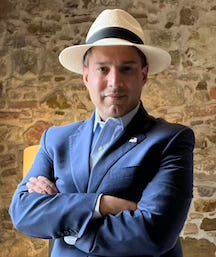|
 |
I recently started a frozen pizza manufacturer in New Hampshire. When I launched the company by purchasing the distressed assets of a company that had recently failed, the new business had to go from “zero to sixty” in a matter of days. Literally overnight, I went from owning a bunch of equipment to hiring dozens of employees and churning out tens of thousands of pizzas a day.
I often invoked a familiar entrepreneurial mantra during the early days: Ready. Fire. Aim. Rather than becoming paralyzed by over-analysis and discussion, I encouraged my team to act and then make rapid adjustments (fire, see where the shot landed, and then make adjustments to improve the aim). At what speed should we run the line? How many people should be in packaging? Which payroll provider should we use? Who should take on the unexpected tasks?
My decades of working in academic, corporate, and government organizations exposed me to a fair share of analysis paralysis. I was determined to avoid the overthinking trap and so, in each case, I urged my team to act quickly. By trying something out first, I believed we would learn more than we could by mere thinking. “Act and Adjust” became my mantra. This approach speeds up decision-making and encourages constant adjustment and improvement and aligns with sage advice from the late, great Yogi Berra, who once famously said, “When you come to a fork in the road, take it!”
These moments came back to me recently as I watched President Donald Trump’s Middle East trip. Might it be possible to make sense of his approach through an entrepreneurial lens? After all, he is first and foremost a businessman, and he has approached politics the same way he approached business over the course of his professional life. He makes decisions the way an entrepreneur might, not as a bureaucrat. There are no taskforces or lengthy interagency processes; no never-ending debates or dueling policy papers. There is just action; quick decisions and sometimes equally as quick pivots. Act and adjust.
This was on display as Trump’s Middle East trip played out, most notably when he announced he was lifting sanctions on Syria, a dramatic policy shift. So dramatic, in fact, that apparently his own Treasury Department—responsible for enforcing sanctions—was taken by surprise. And his State Department, like that of Biden’s before, was still in the process of mulling over the idea that sanctions relief might, under certain scenarios and subject to various criteria, be possible if several critical developments transpired. Trump cut through all of that in an instant, and the speed with which he acted has drawn begrudging admiration from even his harshest critics; one former Biden official even remarked, “Gosh, I wish I could work for an administration that could move that quickly.” Act.
But those expecting a finality to this policymaking may be disappointed; if developments transpire in a direction he doesn’t like, Trump might reverse course with equal rapidity. Adjust. As he has with Ukraine, tariffs, and, well, pretty much everything else, Trump will see how things play out and then make adjustments as needed - no different than an entrepreneur setting up a frozen pizza production line.
And that’s really the message I want to reiterate here. Uncertainty is, by its very nature, a situation in which we don’t know enough to analyze our options and choose the ideal course of action. We have to triangulate multiple perspectives, thinking in scenarios rather than in terms of a likely future. We have to use ranges, rather than point estimates. And ultimately, when it comes to making decisions in face of uncertainty, we need to accept there is no “correct” or ideal answer.
So stop thinking and start acting. You’ll learn as you do, and while it may not be a straight line, I suspect you’ll find yourself moving forward the more you act and adjust… Ready, Aim, Fire!
VIKRAM MANSHARAMANI is an entrepreneur, consultant, scholar, neighbor, husband, father, volunteer, and professional generalist who thinks in multiple-dimensions and looks beyond the short-term. Self-taught to think around corners and connect original dots, he spends his time speaking with global leaders in business, government, academia, and journalism. He’s currently the Chairman and CEO of Goodwell Foods, a manufacturer of private label frozen pizza. LinkedIn has twice listed him as its #1 Top Voice in Money & Finance, and Worth profiled him as one of the 100 Most Powerful People in Global Finance. Vikram earned a PhD From MIT, has taught at Yale and Harvard, and is the author of three books, The Making of a Generalist: An Independent Thinker Finds Unconventional Success in an Uncertain World, Think for Yourself: Restoring Common Sense in an Age of Experts and Artificial Intelligence and Boombustology: Spotting Financial Bubbles Before They Burst. Vikram lives in Lincoln, New Hampshire with his wife and two children, where they can usually be found hiking or skiing.
You're currently a free subscriber to Navigating Uncertainty. For the full experience, upgrade your subscription.



